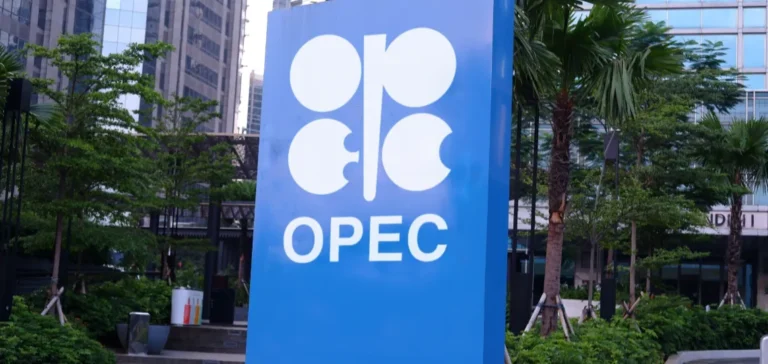The Organization of the Petroleum Exporting Countries and its allies (OPEC+), meeting online on September 7, announced an increase in crude oil production of 137,000 barrels per day (b/d) starting in October. This increase marks the beginning of the unwinding of a second set of voluntary cuts amounting to 1.65 million b/d, implemented since April 2023.
This decision follows the gradual lifting, between April and September, of 2.2 million b/d of initial cuts, completed one year ahead of schedule. Eight producers — Saudi Arabia, the United Arab Emirates, Iraq, Algeria, Kuwait, Russia, Kazakhstan and Oman — are engaged in this strategy. In September, the group had already added 547,000 b/d to the market, thus finalising the first phase of easing.
Details of the new increase
In its statement, OPEC said that this new increase fits within a context of “stable global economic outlook” and “healthy market fundamentals”, supported by low inventory levels. Saudi Arabia and Russia will lead the October adjustment, each contributing 42,000 b/d.
The group members reserve the right to suspend or reverse these increases depending on market developments. While the 137,000 b/d increase is confirmed for October, one delegate stated it could be repeated monthly for one year, thereby dissolving the full 1.65 million b/d.
Actual capacity and production gaps
Some OPEC+ officials believe that the actual volumes placed on the market could be lower, estimated between 60,000 and 70,000 b/d, due to compensation efforts and technical production limitations. The organisation states it is now better positioned than in 2024 to steer the oil market balance.
Russia, Iraq and other producers have recently underproduced relative to their quotas in order to compensate for past overproduction. Kazakhstan, on the other hand, has exceeded its limits, approaching its estimated maximum capacity of 1.8 million b/d, partly due to the development of the Tengiz field.
Internal pressures and market outlook
Iraqi Prime Minister Mohammed al-Sudani recently stated at a conference in Baghdad that his country’s current export quota did not reflect its reserves, production capacity or population, raising expectations of a unilateral increase.
On the markets, Dated Brent prices held around $65.36/b in early September. Despite the resumed production, low global stocks and geopolitical tensions involving Iran and Russia have supported prices. However, some analysts forecast a significant surplus by the end of 2025.
According to a report from August 28, global oil and liquids production could outpace demand growth in the coming quarters, a trend confirmed by expectations of an average Brent price of $68/b in 2025.
An OPEC+ delegate expressed concerns about a potential supply overhang through the first half of 2026. Nevertheless, OPEC maintains a more optimistic outlook than other institutions, projecting average demand at 105.1 million b/d in 2025.






















